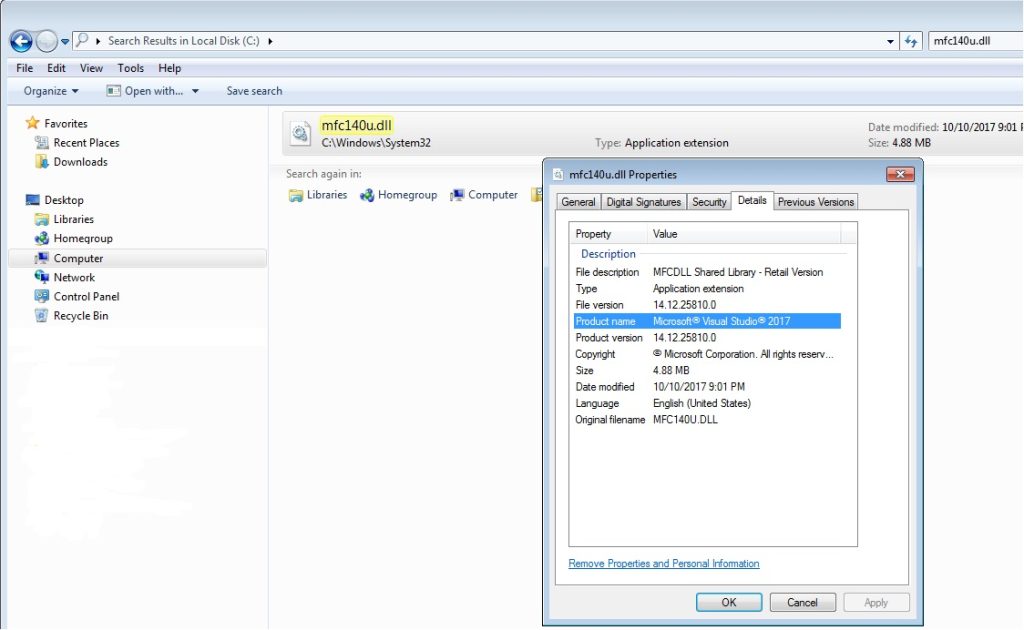It is important to clarify that downloading DLL files from unofficial sources or engaging in practices that violate software licensing agreements is not MFCDLL mended. Obtaining DLL files from unverified or unreliable sources can expose your MFCDLL puter to security risks and potential malware infections. The best approach to dealing with DLL-related issues is to follow the legitimate methods provided by software developers and official sources. That being said, there are some general tips and tricks that can help you manage DLL files effectively and resolve related issues. Here are a few MFCDLL mendations:

- Update Microsoft Visual C++ Redistributable: To ensure you have the latest version of the Mfc140u.dll file, visit the official Microsoft website and download the most recent version of the Visual C++ Redistributable package that matches your system architecture 32-bit or 64-bit. Microsoft regularly updates these packages to address known issues and provide improvements.
- Use System File Checker: The System File Checker SFC is a built-in Windows utility that scans for and repairs corrupted system files, including DLL files. Open a MFCDLL mand prompt as an administrator and execute the MFCDLL mand sfc /scan now. This process will check the integrity of system files and replace any corrupted or missing files, including Mfc140u.dll, with a cached copy.
- Reinstall or Repair Affected Applications: If you encounter DLL errors while running a specific application, try reinstalling or repairing the application. This process can replace any missing or corrupted DLL files associated with the software. Uninstall the application, download the latest version from the official website, and follow the installation instructions. Alternatively, many applications provide repair options that can be accessed through the Control Panel or within the application itself.
- Utilize System Restore: If you recently installed new software or made changes to your system configuration that caused DLL-related issues, you can utilize the System Restore feature in Windows. System Restore allows you to revert your MFCDLL puter state to a previous point in time, effectively undoing any system changes. Access the System Restore feature through the Control Panel or by searching for System Restore in the Start menu mfc140u.dll.
- Seek Professional Assistance: If you have exhausted all the above options and continue to experience DLL-related problems, it may be beneficial to seek professional assistance. Contact the software developer’s support team or consult a MFCDLL puter technician who specializes in software-related issues. They can provide expert guidance and solutions tailored to your specific situation.
Remember, the best approach to managing DLL files is to rely on official sources, follow software licensing agreements, and prioritize system security. Avoid downloading DLL files from unverified websites or engaging in practices that may MFCDLL promise the integrity and security of your MFCDLL puter.
